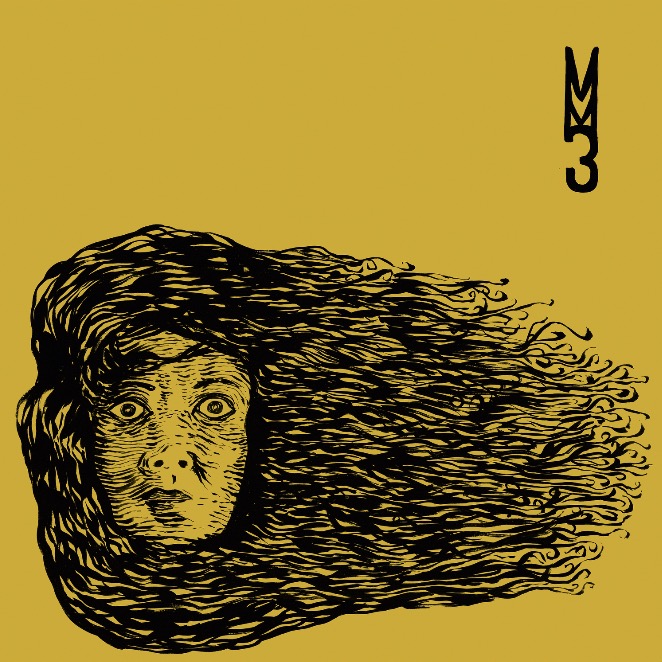Metá Metá's new album, MM3, finds the Brazilian band trimming down song lengths and solos in favor of tightly wound grooves. Thiago França's saxophone playing, which on previous releases was allowed multiple minute-long tantrums, now takes a contained place in the rhythm section. Instead of sprawling, these nine tracks pace like caged animals, eventually erupting into violent, riotous climaxes.
On their last album, MetaL MetaL, the band enlisted the legendary percussionist Tony Allen. With the steady hand of the Afrobeat pioneer, the band was able to lock into rhythmic pockets and let their songs expand with as much aggressive and dissonant soloing as they wanted. As a result, all but two of the songs clocked in at near the four-minute mark. Part of MetaL MetaL's appeal was just how eclectic it was—from track to track, the band grooved on Afrobeat, smuggled in a host of Afro-Brazilian instruments, and skipped along to samba sujo, or “dirty samba.”
But if MetaL MetaL was punk in attitude, MM3 is much more recognizably punk in aesthetics. The cavaquinhos and acoustics stay on the shelf; this album is too dark and noisy. While MetaL MetaL was “eclectic,” MM3 finds strength in a cohesive, self-assured message and style.
Earlier this year, on Elza Soares's fantastic album A Mulher do Fim do Mundo (The Woman at the End of the World), guitarist Kiko Dinucci demonstrated a knack for finding off-kilter riffs that are just dissonant enough to unsettle the listener, and make the eventual loud pay-off that much more cathartic. He brings the same skill to MM3.
The song “Mano Légua” staggers woozily from building climax to building climax—like a handful of Fugazi riffs got lost, only to resurface in São Paulo. “Corpo Vao” stutters up to a full-speed chorus and then treats us to two spaced-out breakdowns where França's saxophone arpeggios gently make a case for the “jazz” element of Afro jazz-punk. Then the rest of the band explodes into a double-time, blast beat-like freak out as if in rebuke, with lead singer Juçara Marçal's vocals riding the wave. “Imagem do Amor” feels like a marriage of Touareg guitar licks and Black Sabbath as much as anything.
Just like Soares's album, MM3 is supposed to sound agitating, if only to better reflect the unsettled political climate in Brazil at the moment. In the press release that accompanied the album, the band stated: "Our music is influenced directly by the present political crisis, it's filled with anguish and turbulence. We've witnessed the most conservative, reactionary and fascist sector of our society rise to power all promoted by the mainstream media"
For the second album in a row, Metá Metá has found kinship and something vital while exploring protest music beyond Brazil's borders, and for the second time in a row, Metá Metá has reinvented its sound to a satisfying result.









